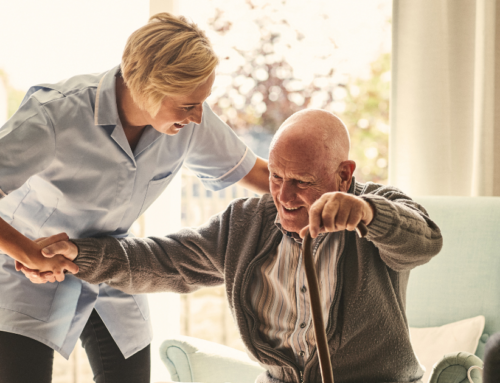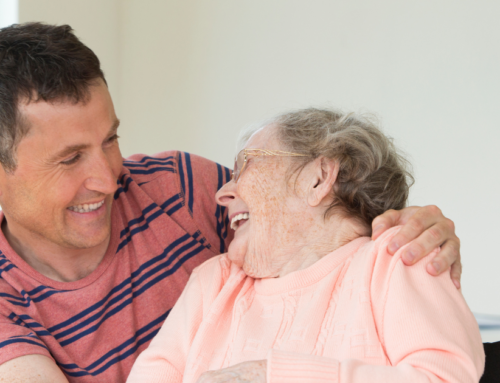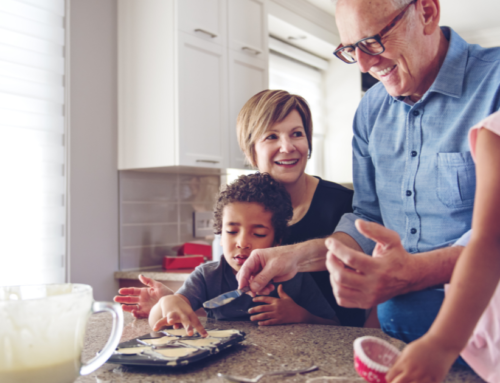Although serving as an informal caregiver is highly rewarding, it can also be physically and mentally exhausting. Unpaid caregivers oftentimes feel unappreciated, overwhelmed and isolated. Caregiver stress is common, a condition that can place both the caregiver and care recipient at risk.
While taking care of an aging loved one it’s important to have a support network around you at-all-times. As one facet of that support network, caregiver support groups can provide many benefits that will help you stay refreshed.
Challenges that Informal Caregivers Face
Roughly 40 million Americans care for another adult with an illness or disability every year, and most juggle those caregiving duties along with a household and job.
In addition to time-management issues here are some of the other challenges that informal caregivers face:
- Feeling lonely, isolated or judged
- Depression, anxiety or distress
- Lack of training for required caregiving skills
- Feeling powerless or helpless
- Insufficient knowledge about what to expect in the future
- Engaging in unhealthy habits to cope with their feelings
Being a more effective caregiver starts with acquiring the training and knowledge that’s needed, along with developing coping mechanisms to diffuse stress before it becomes problematic.
Benefits of Caregiver Support Groups
Caregiver support groups can be helpful because they are filled with people just like you who are dealing with similar situations. Other benefits of joining a caregiver support group include the fact that they help you:
Validate your feelings
Feeling like you want to explode inside because your elderly loved one’s condition is getting worse isn’t healthy- but it is perfectly normal. Support group members validate one another’s feelings and experiences, which is a huge relief when you are feeling unappreciated and alone. Support group meetings are the perfect place to share both your positive and negative feelings with others without being judged.
Learn new caregiving strategies
Caregiving is an on-the-job learning experience that doesn’t come with a handbook. Whether it’s learning about incontinence care or how to feed someone with dementia, seeking advice from experienced group members will equip you with the valuable skills and knowledge that’re needed if-and-when that situation arises.
Expand your support network
A good support network should include good friends, a spouse or partner, and other family members. But let’s face it, siblings can be judgmental or AWOL at times, and you may not be married or in a serious relationship. A support group provides you with much-needed encouragement when others aren’t around or being so supportive.
Connect with like-minded people
Caregiving can put a real damper on your social life. A caregiver support group provides you with a setting to connect with like-minded people that could eventually result in new friendships. As those relationships grow, you’ll have someone that you can sit down and talk to on days when nothing else seems to be going right.
Locating Caregiver Support Groups
If you’re having trouble finding caregiver support groups in your area the local hospitals or community centers usually keep lists. Try entering your zip code in the online Eldercare Locator to pull up the local Area Agency on Aging.
You can also contact local organizations and ask about any support groups they might offer. If your senior has a specific health condition, consult those websites for information about local meetings. The Alzheimer’s Association, Parkinson’s Foundation and American Cancer Society are always good resources.
Add Us to Your Caregiver Support Network
If you’re an informal caregiver another way to stay fresh is by contacting New Wave Home Care. As a fully licensed home care agency our reliable respite caregivers can step in and provide your senior with the nurturing they deserve. Our mission is making a difference in the lives of clients and families we serve by supporting them with personalized in-home care solutions. Our compassionate nurses, caregivers and office staff take pride in going above and beyond in their dedication to providing care for others.
In addition to respite care, our family trusted home care services include transitional care, personal care, specialized care, transportation, hospice support, medication reminders, dementia and Alzheimer’s care. At New Wave Home Care, we use a unique caregiving formula that’s filled with heart! To learn more now about our personalized senior in-home care services in Southern California and the greater Los Angeles area, please visit us at: www.newwavehomecare.com!



